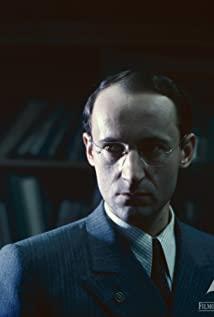In 1988, following "Killing Commandments", Kieslowski shot the sixth commandment in this series of short films (hereinafter referred to as "Love Commandments"). From the perspective of visual and psychological shock, it is not as exciting as the former, nor does it bring people an almost unbearable inner experience, but this editing is more beautiful, with more pain, expectations and despair of ordinary people. Forgiveness - a little closer to our lives. However, I don't think this is a film about love at all, it's more of a story of love and emotional feedback that exists in imagination and longing.
A few years ago, I can't remember a bad poet who wrote: "Wishful thinking is tragic." In this film, Tomek, a 19-year-old boy next door, encounters the mad, painful and intoxicating situation of a lonely lover, he The fascination with the mature and disorganized Magda is ridiculous and futile, and the later dialogue between him and Magda is an interesting example of this poem.
Magda asked, "After all, why are you spying on me?" Tomek was about to answer: Nothing, but instead said, "Because I Love You." Mature Magda just smiled contemptuously at this, she had to translate this "I love you" into a request, an act: "So what do you want?" into "You want to kiss me?" You want to... ML with me?" And when Tomek denied it all, and declared that he wanted nothing, Magda felt real doubt. For Magda, a mature modern woman, love is indeed a strange, absurd and embarrassing word.
In a sense, The Commandments of Love is yet another voyeur's tale. Among them was a young voyeur, a sincere, hopeless and nowhere attachment. There is too much estrangement between Tomek and Magda, maybe it is age, maybe it is the grid space of modern society, the power of isolation, imprisonment and alienation from this space comes from the indifference and emotional thinness of society change. Tomek's peeping at Magda is just a ridiculously pathetic substitute: he tries to establish an imaginary communication, a hallucinatory intimacy. Where access is impossible, the desire to peep prevails.
In fact, The Commandments of Love presents a society of deformed, lonely people: whether Tomek, Magda, or Mahesin's mother. What they embrace is an unknown, hopeless love, and what they "have" is an imaginary or surrogate object of love: in Tomek, his voyeur Magda; in Magda Da is the countless men who have strayed from her body; among the elderly, she is a substitute for her son, a temporary resident in an empty nest - Tomek, who has no mother and may need a mother's love. In this "world" love is a luxury that cannot be afforded. Therefore, Magda chose the most effective way: simply deny the existence of love and love: "Love, there is no such thing."
The film has a sad and warm ending, which is the establishment of contact and communication, and that It was the coming of salvation, the end of a rotten love story, but that was just a vision in Magda's imagination. When Magda sat in Tomek's room, waiting for Tomek who was sleeping, she took off the red cloth on the telescope, and she could see her room clearly from here. I thought Magda would say "Damn, this little bastard...". But at this time, the soundtrack of the Key's style began, and the sad scene began to appear with difficulty, like broken notes, slowly connected into a melody, and finally flowed out. Magda closed her eyes, and in the vision of her soul, she saw herself crying at her desk, and saw the moment when loneliness was exposed. But it was no longer loneliness: Tomek walked in, Magda buried her head in his arms with infinite confidence, tears of happiness and hope filled his eyes...
Years ago, young Raymond fell in love with a woman who was a professional mistress, Proust was fascinated by Madame Swann, and the little bastard fell in love with a bitch in "The Beautiful Sicily", all stories of that era. Now, it's over. Spotted women are no longer mysterious, and little bastards no longer have a special charm. The hormones in our brains are overstimulated, and everything is flat, and whether you will bury your head in my arms and cry, doesn't seem to matter anymore.
In the series of short films of the Ten Commandments, "The Commandments of Love" is a perfect film. It is a hazy, slightly warm spot of light among ten short films. Painful, but charming; desperate, but with a resistance to that despair. While expressing the desire to save, Kieslowski uses his masterpiece to save Polish cinema in crisis.
View more about Dekalog reviews











